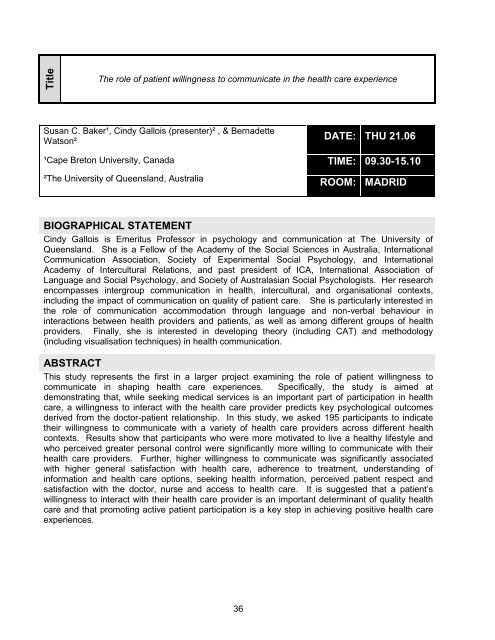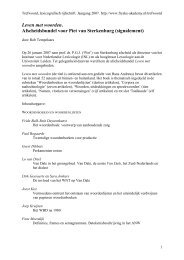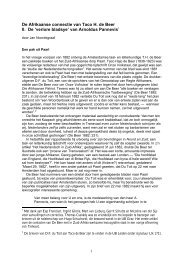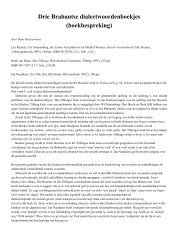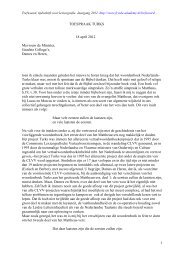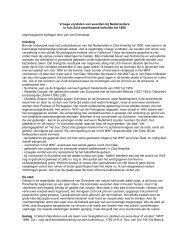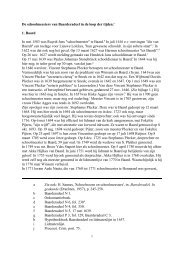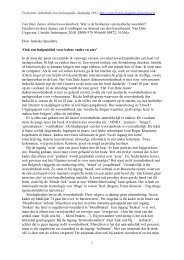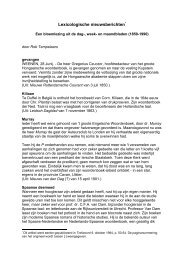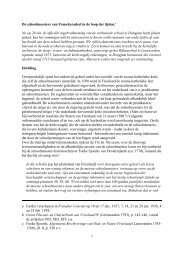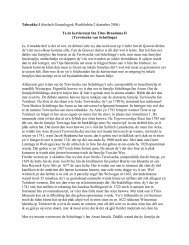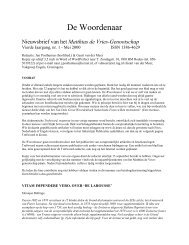Conference Book - Fryske Akademy
Conference Book - Fryske Akademy
Conference Book - Fryske Akademy
Create successful ePaper yourself
Turn your PDF publications into a flip-book with our unique Google optimized e-Paper software.
Title<br />
The role of patient willingness to communicate in the health care experience<br />
Susan C. Baker¹, Cindy Gallois (presenter)² , & Bernadette<br />
Watson²<br />
¹Cape Breton University, Canada<br />
²The University of Queensland, Australia<br />
36<br />
DATE: THU 21.06<br />
TIME: 09.30-15.10<br />
ROOM: MADRID<br />
BIOGRAPHICAL STATEMENT<br />
Cindy Gallois is Emeritus Professor in psychology and communication at The University of<br />
Queensland. She is a Fellow of the Academy of the Social Sciences in Australia, International<br />
Communication Association, Society of Experimental Social Psychology, and International<br />
Academy of Intercultural Relations, and past president of ICA, International Association of<br />
Language and Social Psychology, and Society of Australasian Social Psychologists. Her research<br />
encompasses intergroup communication in health, intercultural, and organisational contexts,<br />
including the impact of communication on quality of patient care. She is particularly interested in<br />
the role of communication accommodation through language and non-verbal behaviour in<br />
interactions between health providers and patients, as well as among different groups of health<br />
providers. Finally, she is interested in developing theory (including CAT) and methodology<br />
(including visualisation techniques) in health communication.<br />
ABSTRACT<br />
This study represents the first in a larger project examining the role of patient willingness to<br />
communicate in shaping health care experiences. Specifically, the study is aimed at<br />
demonstrating that, while seeking medical services is an important part of participation in health<br />
care, a willingness to interact with the health care provider predicts key psychological outcomes<br />
derived from the doctor-patient relationship. In this study, we asked 195 participants to indicate<br />
their willingness to communicate with a variety of health care providers across different health<br />
contexts. Results show that participants who were more motivated to live a healthy lifestyle and<br />
who perceived greater personal control were significantly more willing to communicate with their<br />
health care providers. Further, higher willingness to communicate was significantly associated<br />
with higher general satisfaction with health care, adherence to treatment, understanding of<br />
information and health care options, seeking health information, perceived patient respect and<br />
satisfaction with the doctor, nurse and access to health care. It is suggested that a patient‘s<br />
willingness to interact with their health care provider is an important determinant of quality health<br />
care and that promoting active patient participation is a key step in achieving positive health care<br />
experiences.


